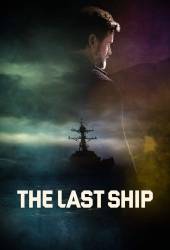Corrected entry: In this episode, Capt Chandler orders the disabled boat to be propelled by the use of 3 parachutes, as sails. The ship then makes "14 knots" to spin the propellers to generate electricity. A ship of this size could not even move, given the amount of wind provided. Furthermore, the 3 parachutes are all pointing in separate directions as if the wind was coming from 3 different directions. The parachutes should normally just crash into each other.
Corrected entry: The ship loses its ability to make fresh water. The crew rigs a small plastic evaporator which is seen overflowing with abundant water. A rig of this size could not produce enough water to supply the needs of even one crew member.
Correction: They've set up multiple evaporators and stills to process the water from other liquids. While not sufficient to provide for a crew of hundreds, when there is no option, one must try anything.
Corrected entry: The DDG class that the "Nathan James" belongs to utilize gasoline-fueled turbine engines, yet they "unrep" from an old liner that would have used bunker oil, incompatible with their engines.
Correction: Arleigh Burke destroyers use turbines that are multi-fuel capable, including heavy distillates like bunker fuels.
Corrected entry: The landing party is going up a river. They expect to lose radio contact with the ship, which they do, and as a back up plan to communicate they use flares, which are seen from the ship. If the ship can see the flares then they could have radio contact within a couple of miles.
Correction: The radios in use are line of sight radios. They would not be able to contact the ship because of the mountainous terrain.






Correction: Dialog during this episode makes it clear that the wind speed is 14 knots but the speed of the ship (speed through the water) is only 4 knots, which is far easier to achieve. The 3 parachutes don't need to propel the ship, they merely need to stabilise the ship at an angle to the incoming wind so that the ships hull and superstructure acts as a "sail" to propel the ship. Last the 3 parachutes are fixed to 3 separate and widely spaced points on the ships forecastle meaning that they would definitely not crash into each other and their lines should be close to parallel (allowing for variations of the workmanship while tying the parachutes to the lines connecting them to the ship), which they are.